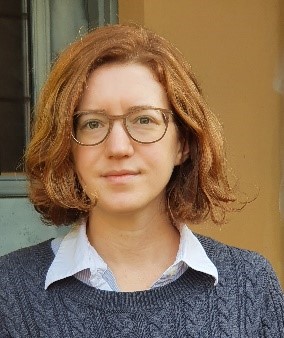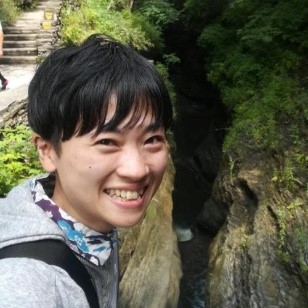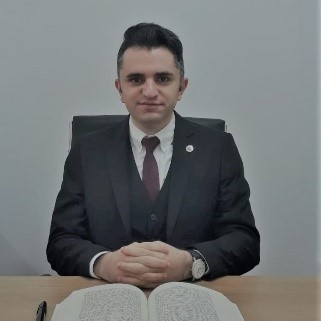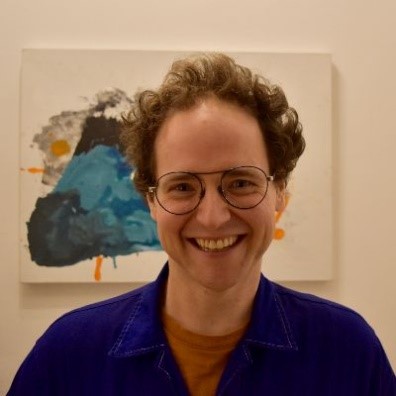On January 8, 2022, SHAFR announced a number of awards at its luncheon at the American Historical Association conference in New Orleans. These awards recognize some of the best emerging scholars in our field. We are now happy to share those announcements with the rest of our community.
The Graduate Student Grants & Fellowships Committee–Sam Lebovic (chair), Kate Burlingham, and Hiroshi Kitamura–made the following awards to more than a dozen graduate students:
The Stuart L. Bernath Dissertation Research Grant

Ayelet Marron is a Ph.D. student at Rutgers University-New Brunswick, working under the direction of Jennifer Mittelstadt. Her dissertation is entitled "Bargaining Under Fire: The Laws of the Market in American-occupied WWII North Africa." Drawing on economic anthropology, legal studies, and gender analysis, Marron's work explores how American, French, and Maghrebi actors negotiated power and reshaped ideas of economic sovereignty and citizenship through everyday acts of exchange.
The W. Stull Holt Dissertation Fellowship

Graeme Mack is a Ph.D. student at the University of California, San Diego, working under the direction of Mark Hanna. His dissertation is entitled “Seaborne Sovereignties: Pacific Maritime Trade and the Origins of American Imperial Expansion, 1787-1848.” His project considers trade routes and ports far beyond North America to argue that American imperial expansion was tethered to Pacific commodities, trade networks, markets and forms of labor.
The Lawrence Gelfand-Armin Rappaport-Walter LaFeber Dissertation Fellowship

Eri Kitada is a Ph.D. student at Rutgers University-New Brunswick, working under the supervision of Jennifer Mittelstadt. Her dissertation, entitled “Intimate and Intertwined Settler Colonialisms: Filipino Women in the U.S.-Japanese Imperial Formations, 1903-1956,” explores the nexus of U.S. and Japanese imperialisms through study of a Japanese settler community in the Philippines under U.S. rule. Kitada’s multilingual research will highlight the interplay of race, gender, and land in relation to overlapping empires and settler colonialisms across the Pacific.
Samuel Flagg Bemis Dissertation Research Grants

Kimberly Beaudreau is a Ph.D. student at the University of Illinois at Chicago, working under the direction of Adam Goodman. Her dissertation is entitled “Refuge in Name Only: The Specter of the Economic Migrant and the Decline of the American Refugee and Asylum System, 1975-2000.” Her project investigates how the executive and legislatives branches of the U.S. government use the economic migrant category to prevent border crossers from reaching the United States, denying these migrants from claiming refuge and asylum. She explores how the categories of “refugee” and “economic migrant” are continuously produced and contested through foreign relations, domestic politics, state practice, and daily lives.

Amy Fallas is a Ph.D. student at the University of California, Santa Barbara, working under the direction of Sherene Seikaly. Her dissertation is entitled “The Gospel of Wealth: Charity and the Making of Modern Egypt, 1879-1939.” Tracing the intellectual, economic, media and political networks of charity work across multiple empires and nation-states, Fallas’ dissertation will provide a new account of the relationship between international charity and the remaking of social life.

Dexter Fergie is a Ph.D. student at Northwestern University, working under the supervision of Daniel Immerwahr. His dissertation is entitled “Headquartering the World: American Power and the Space of Global Governance, 1944-1980.” Building on the “spatial turn” in the study of the U.S. in the world, Fergie studies the political, diplomatic, social, and cultural influence that emerged from the siting of the United Nations in New York City, as the U.S. pursued global governance at the height of the “American Century.”

Christopher Hulshof is a Ph.D. student at the University of Wisconsin, Madison, working under the direction of Alfred W. McCoy. His dissertation is entitled “The Central Java Connection: The Alliance that Ushered in the Suharto Regime, 1960-66.” Relying on ethnography and archival research, this project offers a fresh look at U.S.-Indonesian relations by examining a group of entrepreneurs, scholars, and military figures in Central Java and the politics behind their alliance with the United States on the eve of Suharto’s seizure of power.

Muhammed Cihad Kubat is a Ph.D. student affiliated with Bilkent University and Inonu University, working under the direction of Kenneth Weisbrode. His dissertation is entitled “Turkey’s Participation in the Korean War and the Making of a NATO Ally.” An international history drawing on archival sources in Britain, Korea, Turkey, and the United States, Kubat’s study will provide a new account of Turkey’s relationship with the U.S. during the Cold War.

Miriam Pensack is a Ph.D. student at New York University, working under the supervision of Ada Ferrer. Her dissertation, entitled “Registers of Sovereignty: The Struggle for State and Self in Cold War Latin America,” is a study of the divergent histories of U.S. military bases in Cuba and the Panama Canal Zone in the late twentieth century. Combining the methods of diplomatic and social history, Pensack’s study will provide new insight into the malleability of U.S. empire as well as the meaning and limits of sovereignty and self-determination in Latin America.

Emily Sneff is a Ph.D. student at the College of William and Mary, working under the supervision of Karin Wulf. Her dissertation, entitled “When Independence Was Declared,” explores the transnational circulation of the Declaration of Independence as a text and a news item. Combining the methods of book history with a microhistorical analysis of diplomatic relations, Sneff’s project will provide new insight into the histories of independence, identity, and sovereignty across the Atlantic World.

Joshua Stern is a Ph.D. student at Temple University, working under the direction of Alan McPherson. His dissertation, entitled “U.S. Labor Intervention in Latin America: The Politics of Class Harmony and the American Institute for Free Labor Development,” is a relational history of U.S. labor institutions and the Chilean labor movement. In analyzing how the principles of free trade unionism were promoted to Chilean workers and students, this bilingual study will reveal the active involvement of labor in the U.S. modernization program and the nodes of hegemonic politics that shaped the Global South.

Adam Stone is a Ph.D. student at Rutgers University-New Brunswick, working under the direction of David Foglesong. His dissertation is entitled “Women Citizen Activists and the End of the Cold War: Soviet and Western Transnational Connections, 1980-1989.” His project looks at the work of peace activists and citizen diplomats, their political rhetoric, and their drive to end the deployment of new nuclear missiles. It provides a new perspective on these movements by centering women instead of the Cold War’s traditional “great men.”

Shang Yasuda is a Ph.D. student at the University of Pennsylvania, working under the direction of Eiichiro Azuma. Her dissertation is entitled, “’Soldiering’ through Time and Space: Han Taiwanese and Indigenous Servicemen under the Japanese and U.S. Empires, 1930s-1970s.” Her project looks at Taiwanese servicemen who moved through two different empires to show the persistence of imperial systems and lingering power dynamics that continued to dictate the lives of Taiwanese veterans well after the Second World War.
The Michael J. Hogan Foreign Language Fellowship

This year’s Hogan Foreign Language Fellowship Committee—Heather Dichter, Katherine Marino, and Lorenz Lüthi—announced that Nora Lessersohn of University College, London, is this year’s winner. The committee lauded her exciting and ambitious nineteenth-century project that demands the knowledge of Western Armenian, a language infrequently taught and learned by scholars.
William Appleman Williams Emerging Scholar Research Grants
This year’s Williams Emerging Scholar committee—Joe Eaton (chair), Karin Miller, and Jay Sarkar—recognize two emerging scholars in the field this year:

Kyle Romero’s book manuscript, entitled “Moving People: Refugee Politics, Foreign Aid, and the Emergence of American Humanitarianism in the Twentieth Century,” represents a major contribution to the growing fields of U.S. and international refugee history as well as histories of humanitarian politics and governance. Based on impressive archival research, his work reconstructs the decisive involvement of American actors and U.S.-based institutions, especially Near East Relief and the American Relief Administration, in key refugee relief and transportation projects in the interwar period.

Kuan-Jen Chen’s book manuscript, entitled “The Establishment of a Maritime Order in Cold War East Asia amongst China, Japan, Taiwan, and the United States, 1945-79,” examines the rise of the Cold War order in East Asia and the Pacific from the late 1940s to the 1970s. He tells this story not simply from an American perspective (which dominates the usual narrative), but from Asian perspectives as well (specifically Japanese but also Chinese and Taiwanese).
The Stuart L. Bernath Memorial Lecture Prize

After careful consideration of a fiercely competitive field, this year’s Bernath Lecture Prize committee (Brooke L. Blower (chair), Naoko Shibusawa, and Adriane Lentz-Smith) have selected Professor Oli Charbonneau of the University of Glasgow to receive the 2022 Stuart L. Bernath Lecture Prize. Praised by nominators as an innovative, creative, and highly productive scholar and teacher, Charbonneau (Ph.D. University of Western Ontario, 2016) is the author of numerous essays and articles as well as Civilizational Imperatives: Americans, Moros, and the Colonial World (Cornell University Press, 2020, Philippine edition forthcoming). By focusing on the mechanics of inter-imperial exchanges and the everyday administration of Mindanao-Sulu—and tacking impressively between local, regional, and global scales—Charbonneau’s research sets new conceptual standards and new analytical trajectories for the study of U.S. Empire.

